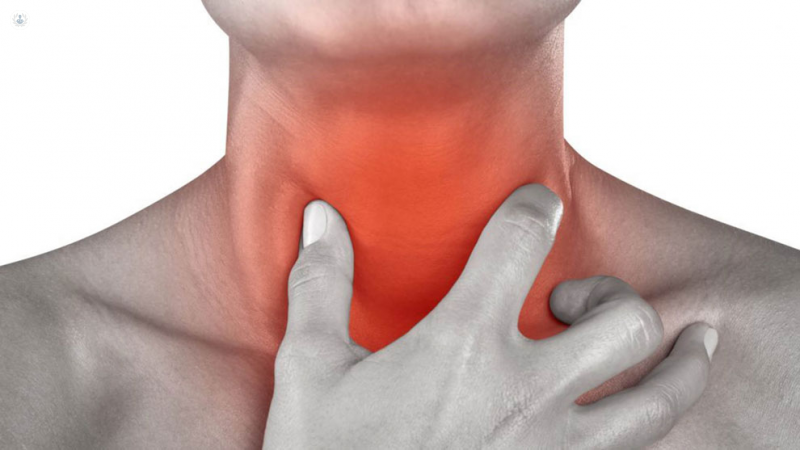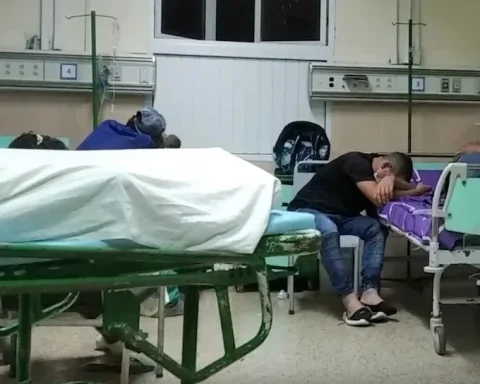The Department of Head and Neck Surgery of the Chair and Otolaryngology Service of the Faculty of Medical Sciences UNA, will carry out surgical sessions on head and neck pathologies in context this week for its world day of commemoration.
At the start of Head and Neck Cancer Week, three surgeries were performed on patients diagnosed with thyroid nodules, adenopathies and tracheal stenosis, the latter on a patient with a Dumont cannula. Other surgeries for various pathologies are scheduled throughout the week, including: parotid tumor, tonsillar lesion, subglottic stenosis, hyperparathyroidism.
The surgical team is made up of the instructors, Dr. Marta Osorio, Dr. Hernán Ortiz, Dr. José Ortiz, Dr. Marcelo Villalba, Dr. Angélica Santos; and residents, such as Dr. Evelio Legal, Dr. Ricardo Serrano, Dr. Rodrigo González. In addition, anesthesiologists, surgical instrumentalists and the circulating nurse, Lic. Evelia Insfrán and nursing assistants participate.
head and neck cancer
Dr. José Ortiz, otorhinolaryngologist, head and neck surgeon of the Otorhinolaryngology Service, explained that head and neck cancer and oncological pathologies occur mainly at the level of the upper airways, whether in the paranasal sinuses, oral cavity, oropharynx, larynx, salivary glands and the thyroid gland located at the level of the neck is also involved.
Cancers in the upper airways are squamous cell carcinomas, which are histological in origin from the epithelium of the upper part of the mucosa.
Risk factor’s
The specialist indicated that the upper part of the mucosa is exposed to certain toxins, where the main predisposing factor and cause of head and neck cancer until today is tobacco.
“There is a multiplier synergistic association of the combination of tobacco with alcohol, so, both cancer of the oral cavity, mouth, tongue, larynx, all are mainly related to tobacco consumption.”
The specialist stated that in relation to pharyngeal cancer, mainly of the oropharynx, in recent years an important relationship has been seen with the Human Papilloma Virus (HPV), an infection that causes cervical cancer, such is that, which basically modified many classifications.
HPV virus infection is transmitted by intimate contact. In the child, it becomes infected through the birth canal; while in adults it is usually by sexual contact through oral sex.
“If one has cancer of the oral cavity of the oropharynx, tonsils, soft palate, base of the tongue, then studies are done in Clinics through Pathological Anatomy, P16 is performed, which indicates whether or not that cancer is related to HPV infection. , because it has a different prognosis, it occurs in a different population group and precisely what we want is for people to know about the existence of these tumors”.
Dr. Ortiz mentioned that the important thing would be that in the presence of these risk factors it is to see the early symptoms of a head and neck pathology.
“An ulcer in the mouth or tongue that does not heal due to traumatic injuries, dental injuries that occur when biting the tongue that does not heal, or an ulcer of more than 15 to 20 days, must be evaluated by the medical professional, since there are patients young people with tongue cancer due to traumatic injuries, chronic traumas that lead to tongue cancer”, said the professional.
Another example that he mentioned is when a dysphonia occurs, a change in the voice for more than 15 days should attract attention and go to a medical center to be evaluated by an otolaryngologist. Although it may be an inflammatory pathology, it must be ruled out if there are certain risk factors that are not related to a tumor.
Prevention
Dr. José Ortiz referred that the best medicine is prevention and mentioned that irritating factors such as tobacco should be avoided mainly.
The Department of Head and Neck Surgery has a significant number of patients who undergo weekly operations due to a diagnosis of head and neck cancer. They are surgical procedures of a wide range, from small surgeries to large surgeries with a high impact on the patient.
Surgical treatment of head and neck cancer is often accompanied by oncological treatment with radiotherapy and chemotherapy, followed by surgery. Sometimes it is exclusively surgery or it is combined according to the type of tumor and its stage.
The Otorhinolaryngology Chair and Service offers various services for the rehabilitation of patients undergoing head and neck surgeries.

















